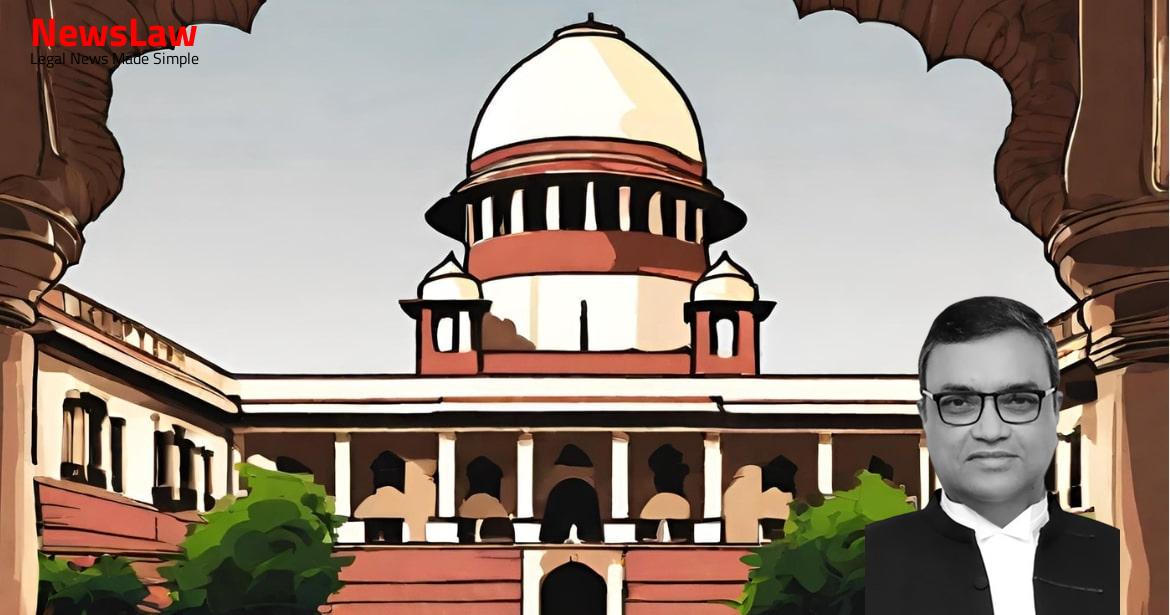After depositing three instalments towards the flat, she passed away, and was succeeded by her daughter-in-law Dr (Mrs.) Manjeet Kaur Monga, who deposited the fourth instalment.
Also Read: https://newslaw.in/supreme-court/legal-analysis-of-claim-for-loss-of-profit-in-delayed-contract/
Dr Manjeet Kaur Monga deposited two further instalments, with the sixth instalment deposited in September 1993. Aggrieved, the complainant through her lawyer, issued a notice dated 7 September 2005 to the developer, stating that she was always ready and willing to pay the instalments towards the flat, in tune with the allotment letter, but the developer did not keep up its part of the bargain regarding timeliness of delivery 3 of possession and quality of construction. Manjeet Kaur Monga filed a complaint under Section 36 of the (then) Monopolies and Restrictive Trade Practices Act, 1969 ( hereinafter, “ MRTP Act” ) alleging unfair trade practice by the developer. The MRTP Commission disposed off the application filed under Section 12A of the MRTP Act restraining the developer from creating third party interest with respect to the flat. The COMPAT held the developer guilty of unfair trade practice under Section 36-A (1) (i), (ii) & (ix) of the MRTP Act and also ruled that the complainant was justified in not paying further instalments and the developer committed illegality by cancelling the allotment.
The COMPAT however directed the developer to pay compound interest @ 15% per annum to the legal representatives of the complainant with interest calculated on each instalment from the date of its deposit till 30 April 2005, i.e., the date on which the allotment was cancelled. This court also noticed the contentions of the developer that when it had taken the Pay Order from Citibank on 30 April 2005, the amount of 4,53,750/- covered by that instrument had been deducted from its current account. By the impugned order, NCLAT noticed the facts leading to the order of this Court, including that the complaint was filed in 2005 along with the original Pay Order, issued at the behest of the developer by Citibank, which had been returned initially by the complainant, but given back to the complainant. The NCLAT, by the impugned order, directed as follows: “It is accordingly found that the direction of COMPAT in terms of order dated 3rd August, 2015 in regard to payment of Principal amount of Rs.4,53,750/- stood not complied with till 7th May, 2016. It was urged that NCLAT fell into error as it failed to appreciate that since the legal representatives of the complainant did not get the refund of the amount of 4,53,750/- from the developer until 7 May 2016, the interest on the said principal amount ought to run from 4 October 1993 till the date of realization of the amount i.e.
Learned counsel highlighted, that moreover, the developer took full advantage of the amounts deposited by the complainant, and after cancelling the allotment, had immediately allotted the flat to another purchaser, for a considerably higher sum of 21 lakhs.
The developer became aware that the Pay Order was part of the complaint filed before the MRTP Commission for the first time on 29 April 2016, when a statement was made by the complainant’s counsel. However, once the amount was debited from its account, and the Pay Order was made over to the complainant, who sought to return, it, but after that, was handed back the Pay Order, the developer could not be held responsible. Counsel for the developer relied on Order XXI Rule 1(4) and (5) of the Code of Civil Procedure, 1908 ( hereinafter, “ CPC ” ) to state that once the amount in question was paid through the bank (i.e., through an instrument issued by the bank, such as Demand Draft or Pay Order, as opposed to a cheque, “ drawn on a bank ” ) the liability would cease.
To the above limited extent we remit the matters to the Competition Appellate Tribunal, New Delhi. The materials on record would disclose that in this case, after issuing notice, the complainant returned the Pay Order received by her under cover of letter dated 7 September 2005, however, the developer (in response to the complainant’s notice), by letter dated 26 September 2005, denied the allegations contained in the notice and also returned the Pay Order for 4,53,750/- and the banker’s cheque for 1 lakh.
Even the counter affidavit filed by the complainant in the developer’s appeal states that she: “Bonafidely also deposited the Pay Orders dated 30-04-2005 in the registry along with the complaint under protest in court.” Since the pleadings in the complaint did not refer to the Pay Order, which was attached in the original along with the complaint, the developer ’ s reply too was silent on this aspect. In the previous proceedings before this court, in complainant’s appeal, this court’s order, dated 29 April 2016 reads as follows: “ The learned counsel for the appellant submits that the Demand Drafts furnished by the respondents have already been deposited before the MRTP Commission. It has been brought to the notice of this Court that when the builder company, the appellant in the appeals arising out of SLP(C) Nos.10484-10485/2016, had taken the pay order from the Citibank on 30.04.2005, the amount of Rs.4,53,750/- covered by the pay order had actually been deducted from their current account. and on the general principle of restitution, the builder cannot be put to unmerited injustice and the appellant should not take the undue advantage as held by this Court in Citibank N.A. Learned counsel appearing for Citibank, inviting our reference to the additional affidavit contended that it is a fact that the money from the current account of the builder has been deducted on 30.
The counter affidavit filed by the complainant, to the developer’s appeal presently before us, contains the following averments: “It is reiterated that the said Pay Order was sent by the Appellant No.2 to Respondent No 1 vide cancellation letter dated 30.04.2005.
From the impugned order, it is evident that the Tribunal accepted the explanation of Citibank that since the Pay Order in question had become stale, its proceeds / funds were moved to its ‘U nclaimed Sundry Account ’, and did not attract any interest in terms of the RBI directions. After noticing these facts, the Tribunal appears to have been swayed by the circumstance that the developer was held liable for unfair trade practice, and directed to pay compensation (in terms of the previous orders of the COMPAT) affirmed by this court, i.e., 15% compound interest on 4,53,750 /-. Thirdly, equally, she could have sought for appropriate orders that the amount be maintained by the developer, who could, in the event it became necessary, be directed to pay the principal along with such interest as the Commission or the Tribunal deemed appropriate and in the interests of justice. This court, in Gurpreet Singh (supra), observed in the context of Order XXI of CPC (which deals with modes of payment under decrees and also stipulates when interest shall cease to “run” (i.e., not be payable)) as follows: 18 “Thus, in cases of execution of money decrees or award decrees, or rather, decrees other than mortgage decrees, interest ceases to run on the amount deposited, to the extent of the deposit.
5,000/- by the trial court along with interest and costs and the judgment debtor deposits the same and gives notice to the decree holder either by approaching the executing court under Order XXI Rule 2 of the Code or by making the deposit in the execution taken out by the decree-holder under Order XXI Rule 1 of the Code. 5,000/- decreed by the trial court and deposited by the judgment debtor even before the enhancement of the amount by the appellate court or that he can re-open the transaction and make a re-appropriation of interest first on Rs. Sub-rule (3) of Rule 1 merely indicates that in case money is paid by postal money order or through a bank under Clause (a) or Clause (b) of Sub-rule (1) thereof, certain particulars are required to be accurately incorporated while making such payment. However, they embody a sound policy principle, that if the amount is deposited, or paid to the decree holder or person entitled to it, the person entitled to the amount cannot later seek interest on it.
This is a rule of prudence, inasmuch as the debtor, or person required to pay or refund the amount, is under an obligation 20 to ensure that the amount payable is placed at the disposal of the person entitled to receive it. In the present case, the complainant was aware that the Pay Order had been tendered by the developer to her; nevertheless she filed the original Pay Order with her complaint, and did not seek any order from the MRTP Commission at the relevant time. The respondent’s right to purchase must, therefore, prevail.” In the present case too, the complainant cannot claim interest from the developer, who had returned the Pay Order. Such guidelines should also cover situations 22 where the concerned litigant merely files the instrument (Pay Order, Demand D raft, Banker’s Cheque, etc.) without seeking any order, so as to avoid situations like the present case. The complainant’s appeal, i.e., C.A.
Case Title: K. L. SUNEJA Vs. DR. (MRS.) MANJEET KAUR MONGA (D) THROUGH HER LR (2023 INSC 89)
Case Number: C.A. No.-001401 / 2019



